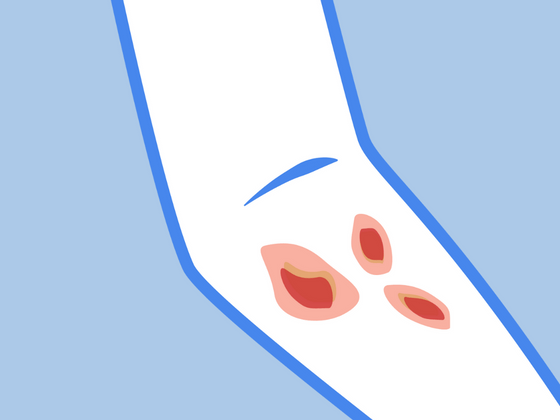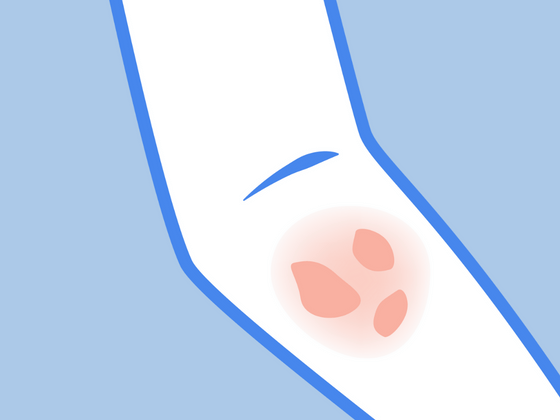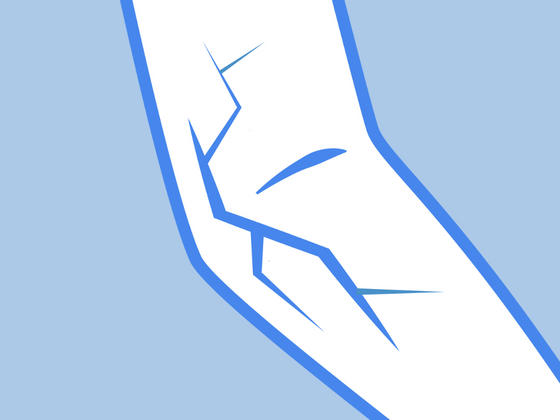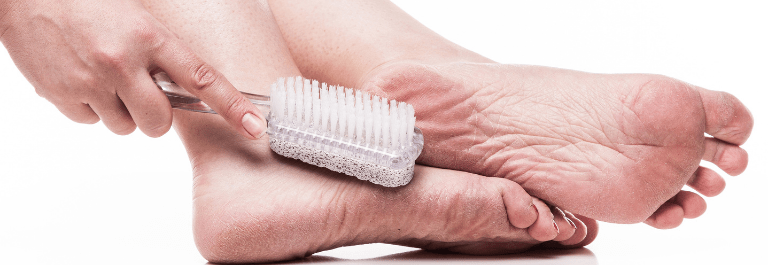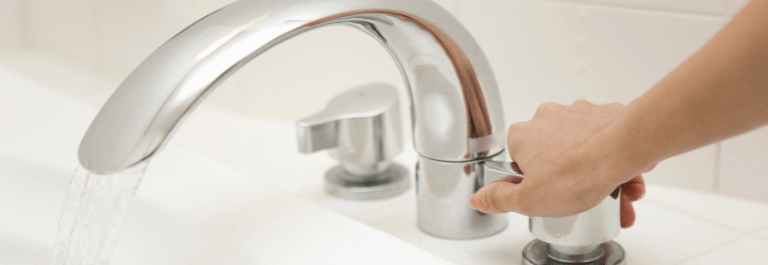You're not alone if you have dry, cracked skin on your feet, you’re not alone. This is a common problem that many people cope with daily. While it can sometimes be a cosmetic issue, dry skin can be highly uncomfortable, leading to a rash, pain, itchiness, and possibly even infection.
In this post, we discuss some causes of cracked skin on your feet and share some natural remedies for treating your feet.
Please keep in mind that although these tips and information have worked for several sufferers, we are in no way medical professionals. If you’re experiencing severe symptoms or have a topical infection, it is always best to seek medical advice immediately.
Causes of Cracked Skin on Feet
Dryness and cracking occur when there is a lack of moisture in the skin. This can be due to an underlying health condition like eczema. Eczema is a chronic condition that is caused by a damaged skin barrier. It’s characterized by redness, dryness, itchiness, weepiness and inflammation. If scratching occurs, the skin can crack or bleed, which can make the skin more vulnerable to infection.
Diabetes is another medical condition that can lead to cracked skin on the feet.
Environmental factors, temperature, and weather can affect your skin. For example, the inside of your shoe can experience lots of heat and humidity. This can cause your skin to lose moisture. On the other hand, cold weather is also known to exacerbate dryness. That’s why you may notice that your skin feels drier and itchier during winter when the cool air contains less moisture. In addition, indoor heating can further dry out the skin.
The body also naturally produces less oil as we age. Research indicates that approximately 50% of adults over 40 suffer from dry skin. The protective pad on the sole of your feet also thins as you age, which can lead to cracked, calloused skin.
Finally, harsh skin care products can aggravate dry, cracked skin. Unfortunately, many soaps contain harsh chemicals or ingredients that can strip the skin of its natural protective oils. They can also leave behind an irritating residue that can contribute to dryness.
The Best Cracked Skin on Feet Treatment
Here are some ways to soothe your cracked skin and enjoy healthier feet.
Soak Your Feet and Exfoliate
We recommend soaking your feet in lukewarm, soapy water for around twenty minutes. It’s important to use lukewarm water as hot water tends to dry the skin further. We recommend this Emily Liquid Soap Soother as it’s free from parabens, sodium laurel, and laureth sulfate (SLS), making it a gentle choice. Next, exfoliate any hard, thick skin using a loofah or pumice stone. Finally, thoroughly dry your feet when finished.
Apply a Moisturizing Cream
Keep the skin on your feet well moisturized by applying a natural cream like this Organic Manuka Skin Soothing Cream. This thick and creamy ointment moisturizes even the driest of skin like a dream.
Wear Protective Socks
Wearing breathable, comfortable socks can make a huge difference as you go about your day. We recommend these these Remedywear™ (TENCEL + Zinc) Socks for KIDS because of their super soft touch. For adults, check out these Hypoallergenic Socks. Free from latex, they’re an excellent choice for those with sensitive skin. Also, you’ll love their moisture-wicking properties!
Try Wet Wrap Therapy
Wet wrap therapy is an effective at-home treatment that gives your skin a moisture boost when you need it most. It involves applying a natural cream and covering it with a wet layer, such as these Remedywear™ (TENCEL + Zinc) Socks for adults and kids. Follow up with a dry layer overtop to help lock in the moisture. Leave the wraps on overnight or for a minimum of 2 hours.
References:
https://www.webmd.com/skin-problems-and-treatments/what-to-know-cracked-heels
https://www.verywellhealth.com/coping-with-dry-cracked-feet-1337642
https://www.healthline.com/health/cracked-heel-heal

Bio: Kazandra is a contributor and content developer for The Eczema Company with a flair for creative storytelling rooted in strategy. Her comments, suggestions, and reflections are not intended to replace any medical advice. Please always seek the help of a medical professional before making any diet or lifestyle changes.

